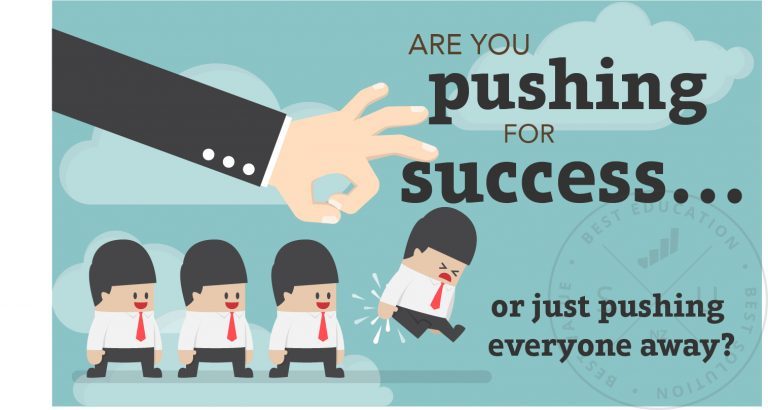Pushing for success… or just pushing everyone away?

People
While one can argue that this form of leadership is effective, how sustainable is it? These dominant personalities sure make a splash in the media and on the stock exchange, but their single-minded drive also needs to be ever present in the details of their business and requires a level of hands-on energy that allows for no down days.
But what of the other 2,800 businesses that can be deemed ‘successful’ that are listed on the New York Stock Exchange? Are these other businesses, some over 100 years old, all driven by a singular human force within them? So how do we balance the drive of building a successful business with creating an entity that will become a legacy, long after we’re no longer pushing for its success?
Dopamine – the selfish hormone
The first step is to identify just what drives these individuals, and that’s the hormone dopamine. Dopamine is the first of the ‘DOSE’ hormones that are responsible for our behavior. It’s what makes us feel good when we tick off a task or achieve a goal. It’s known as the ‘selfish hormone’ as its production is our own reward for achieving something that aids our survival.
Back when we were clansmen it is what kept us alive as individuals by driving us to hunt down food and then gorge ourselves in order to ensure our personal well-being. Only once we’d seen, gathered and then eaten the wild apples, for example, would we then consider bringing back what was left for the clan.
Now, in our modern day human form, dopamine is what drives us towards success. Notably, it is also the hormone responsible for addiction, because it is the most satisfying of hormones– we get the same dopamine
Using dopamine to lead in a positive way
So how do we create a business that doesn’t need a leader to be a singular force? Firstly, we share our vision for the business. This vision, which I’ve talked about in a past blog Creating A United Organisation Through Language, ensures that the company goals are not just communicated throughout the business, but it’s done in such a way that no dictatorship is required.
But, what if the dopamine-driven individual is not you, but a leader of a team you manage? Then, you need to manage their dopamine ‘hit’ in a different way. Team leaders, or even entire teams, that are dopamine dominant will isolate themselves from the rest of the team, potentially driving a wedge through the company, resulting in poor performance from other teams, aggression and office politics.
Now, the opposite hormone (in our D.O.S.E. model) to dopamine is oxytocin. You can introduce a dose of the ‘love hormone’ to a dominant personality through simple things like showing them that the success of the team is important to their own success as an individual. Ensure that they can see how working as a team benefits them and their agenda.
Getting dopamine into your team
If you’ve got a team that is the opposite of dominant, who are slow to make progress and not engaged with the business success you can use a few techniques in order to get them a feel-good dopamine hit. Give the team smaller achievable goals, such as delivering orders by a certain time to meet (and beat) the courier pick up. Give them a visual scoreboard, where everyone can see them move towards a goal – achieving small goals, then introduce a bit of serotonin by acknowledging their successes.
Balance strong leadership with a D.O.S.E. of prestige
As with all the D.O.S.E. hormones, we need to create a balance in our teams in order to create a balance in our business. As leaders, we need to also find ways to keep ourselves and our dopamine in check. The best way to achieve this is by balancing dominance with prestige, that is leaders who operate in the hormone world of serotonin and have a style of leadership that is about empowering their staff and teams. Where dopamine is a ‘selfish’ chemical, serotonin is a ‘selfless’ one and the two should work in balance in order to become a respected, successful leader. To learn more about the D.O.S.E. model, read my article Why you need to D.O.S.E. your team.
A well-rounded leader that knows when to lead, and when to let their teams make their own decisions, will ensure you don’t just earn respect, but that your legacy of success will live on, long after you’ve moved on.